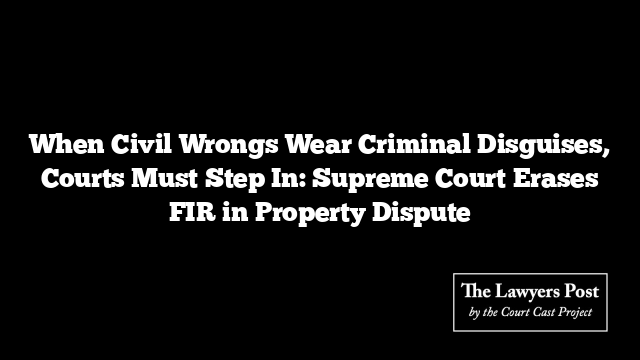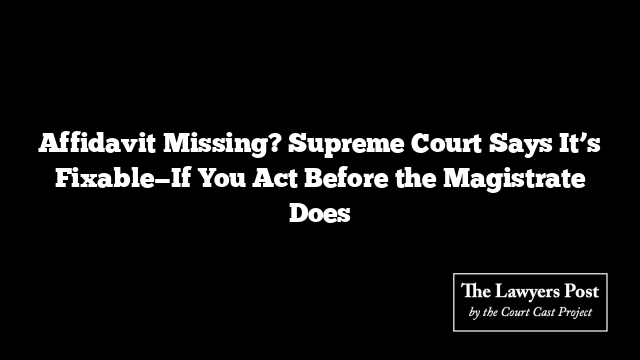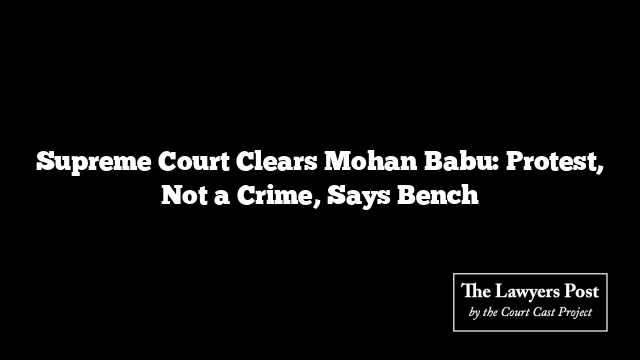The Supreme Court has drawn a firm line between civil grievances and criminal allegations, ruling that when a purely civil matter is camouflaged in criminal colors—with no trace of criminal intent—criminal proceedings cannot be allowed to limp forward.
In a case where a property dispute snowballed into both a civil suit and an FIR for cheating and breach of trust, the Court declared the dual-track litigation an abuse of judicial process. “Letting both cases proceed without any element of criminality is a misuse of the court’s time and authority,” the bench said, warning against turning contractual disagreements into criminal vendettas.
The dispute involved a complainant who, while pursuing a civil case for specific performance of a property agreement, simultaneously slapped landowners with charges under Sections 420 and 406 of the IPC—alleging they had cheated and betrayed his trust.
But the Supreme Court wasn’t buying it.
Setting aside a Karnataka High Court order that allowed the criminal case to go on, Justices Sudhanshu Dhulia and Ahsanuddin Amanullah noted that the FIR smelled more like retaliation than justice. The supposed “cheating” charges emerged only after property prices had skyrocketed—a detail the complainant himself admitted. That timing, the Court said, seriously undermined any claim of criminal intent at the time the agreement was signed.
Justice Amanullah, writing for the bench, emphasized that criminal law requires a key ingredient that civil law does not: mens rea, or intent. And if that intent doesn’t exist from the very start, courts must shut down any criminal case built on thin air.
The ruling leaned on the precedent of Paramjeet Batra v. State of Uttarakhand, a 2013 decision that cautioned High Courts against letting civil disputes masquerade as criminal cases. If a transaction is essentially civil and a civil remedy has already been invoked, the judgment said, criminal prosecution should not be weaponized to pressure the other side.
The appeal was allowed, and the FIR against the landowners was erased.





